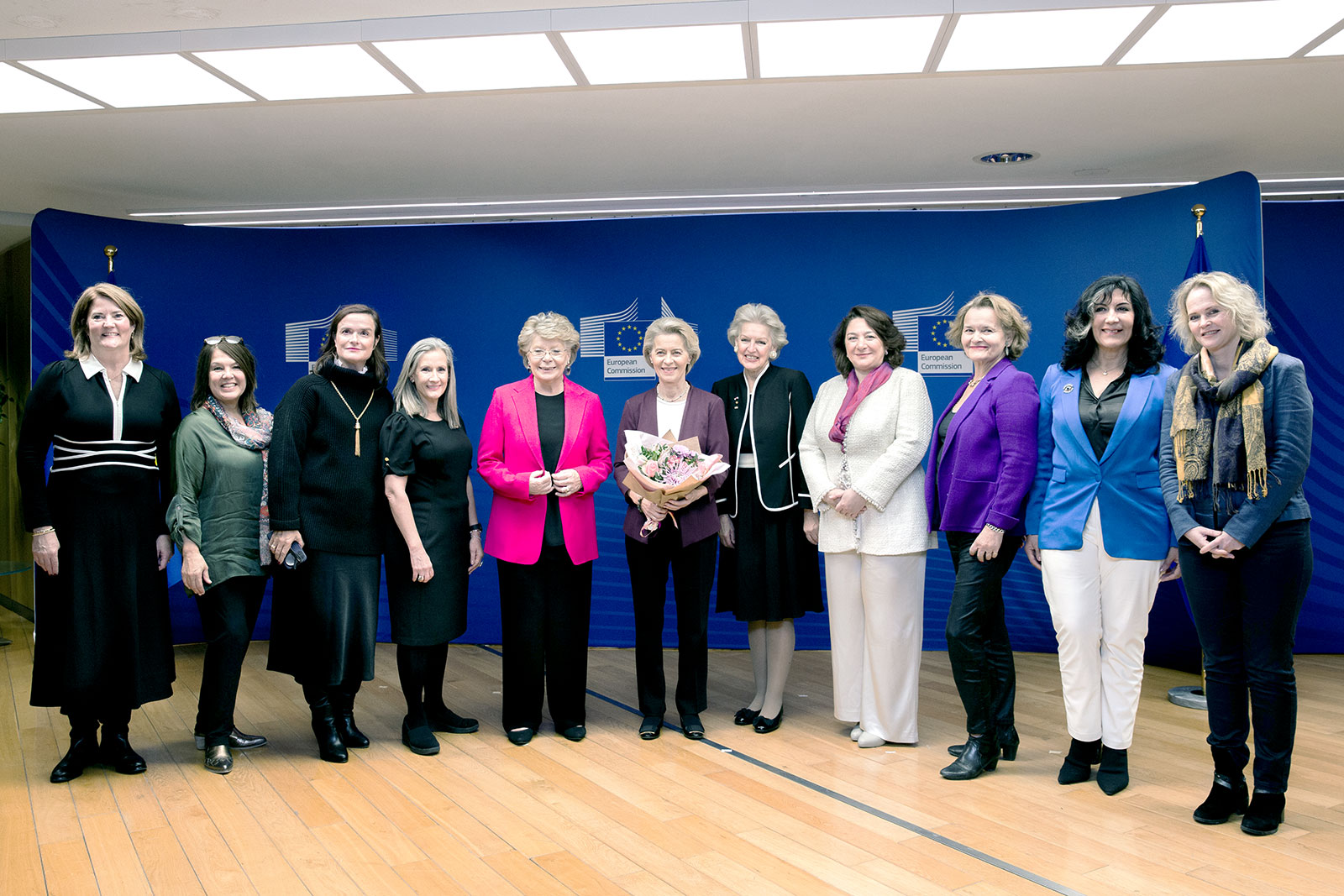Upcoming Events
Women Leadership Conference Brussels
Promoting Allyship and Inclusion in Today’s Workplace
- About
Join us for an afternoon of inspiring presentations, plenary debates and networking on diversity, leadership, and opportunities for advancement.
Exceptional women and men will share their insights, their perceptions, and their personal experiences regarding diversity and inclusion strategies and the impact of diversity on boards and better decision-making at board level.
- Date and time
Thursday, November 14 · 2 – 6pm CET
- Location
Le Bouche à Oreille
11 Rue Félix Hap 1040 Etterbeek
- Highlights
Diversity & Inclusion – How businesses can lead in promoting diversity and inclusion
In the ongoing pursuit of gender equality in the workplace, we will explore practical strategies that organizations and companies can adopt to foster a more inclusive work environment. With participants from both the public, political, and private sectors, we will discuss the role of businesses and leadership in advancing diversity initiatives, such as how diverse teams can drive innovation, improve decision-making, and enhance overall performance. Key insights will focus on overcoming common barriers to inclusion, building a culture of belonging, and ensuring accountability at all levels of the business.
We will also look at the importance of personal responsibility in promoting inclusive environments, discussing how individuals can be encouraged in becoming allies and advocates for diversity, using their voices and influence on challenge biases and support underrepresented groups.
Brought to you by:
Speakers

Nicolas Schmit
European Commissioner Jobs and Social Rights

Caroline Farberger
Chair | Board Executive | Investor | G7 advisor

Robert Baker
CEO Potentia Talent Consulting Limited

Helen Tubb
Leadership & Gender Dynamics Advisor | Founder, Helen Tubb
Moderator

Kerstin Born-Sirkel
Senior Associate EPC, BSC International
Why work with us?

Diversity
We can help you achieve diversity goals. Workplace diversity provides different perspectives, innovative ideas and creativity a growing company needs to ensure long-term success.
Show More
We are passionate about diversity and equality regarding mix of genders, races, ethnicities and ages. This is why we have decided to work with Forté Foundation to create a database for Global Board Ready Women (GBRW).

Tailor-made Searches
The search process is adapted to your needs. We are solutions focused – working together to achieve search success.
Show More
Our ability to find creative solutions contributes to our reputation for high quality and professional relationships and outcomes. We take the time to understand your needs and the issues which are critical for search success.

International Reach
Show More
We believe that our cultural diversity and extensive language skills strengthen our ability to connect with candidates and clients wherever they may be. We conduct and coordinate searches across several countries or continents simultaneously.
Who are we?
We are specialised in finding top candidates at local, national and global level to ensure your long-term success . Our sparkling and smart approach has been proven successful for close to 20 years.

Our Vision
Show More

Our Values
Passion: We are passionate about what we do. Passionate about cultures, about people, about diversity.
Show More
Integrity: We are honest and ethical. We conduct our business with absolute integrity.
Diversity & Inclusion: We embrace differences. At Phoenix, we come from diverse cultures and backgrounds and we love it.

Our Strengths
Show More
International Environment: We believe that our cultural diversity and extensive language skills strengthen our ability to connect with candidates and clients wherever they may be.
Lean organization: We are a small team, giving us the ability to make decisions fast while maintaining a high level of professionalism.
Our Partner Forté Foundation


We believe in equal opportunities for both men and women, for every search we select only those with the closest and best fit. To enhance equal opportunity we have created a partnership with the Forté Foundation.
Join The Global Board Ready Women Database
The Global Board Ready Women Database is a resource that aims to increase the visibility of qualified female candidates for corporate boards around the world. It is a searchable database where companies and organizations can find highly skilled and experienced women who are potential candidates for board positions.
Join us in driving diversity and inclusion in corporate boardrooms across the globe!
Past Events
Recap of the Global Board Ready Women Leadership Conference
Thank you for making the Global Board Ready Women Leadership Conference a resounding success! On Wednesday, 8 November 2023, Phoenix Executive and Forté Foundation hosted an inspiring afternoon of presentations, plenary debates, and networking in Brussels.
Highlights
Our exceptional speakers from diverse continents and regions, including esteemed participants from our partner, Forté Foundation in the US, provided insightful perspectives on diversity, leadership, and opportunities for advancement. The discussions covered a wide range of topics, from regional issues like the EU Gender Equality Law 2026 and Gender Pay to global insights on developments in countries around the world.
Capturing the Moment
We’re delighted to share a group picture featuring our esteemed speakers and participants. This image encapsulates the collaborative and empowering atmosphere of the conference.
Press Release
For a comprehensive overview of the event, please refer to our official press release. It includes key takeaways, notable moments, and insights shared during the Global Board Ready Women Leadership Conference.

